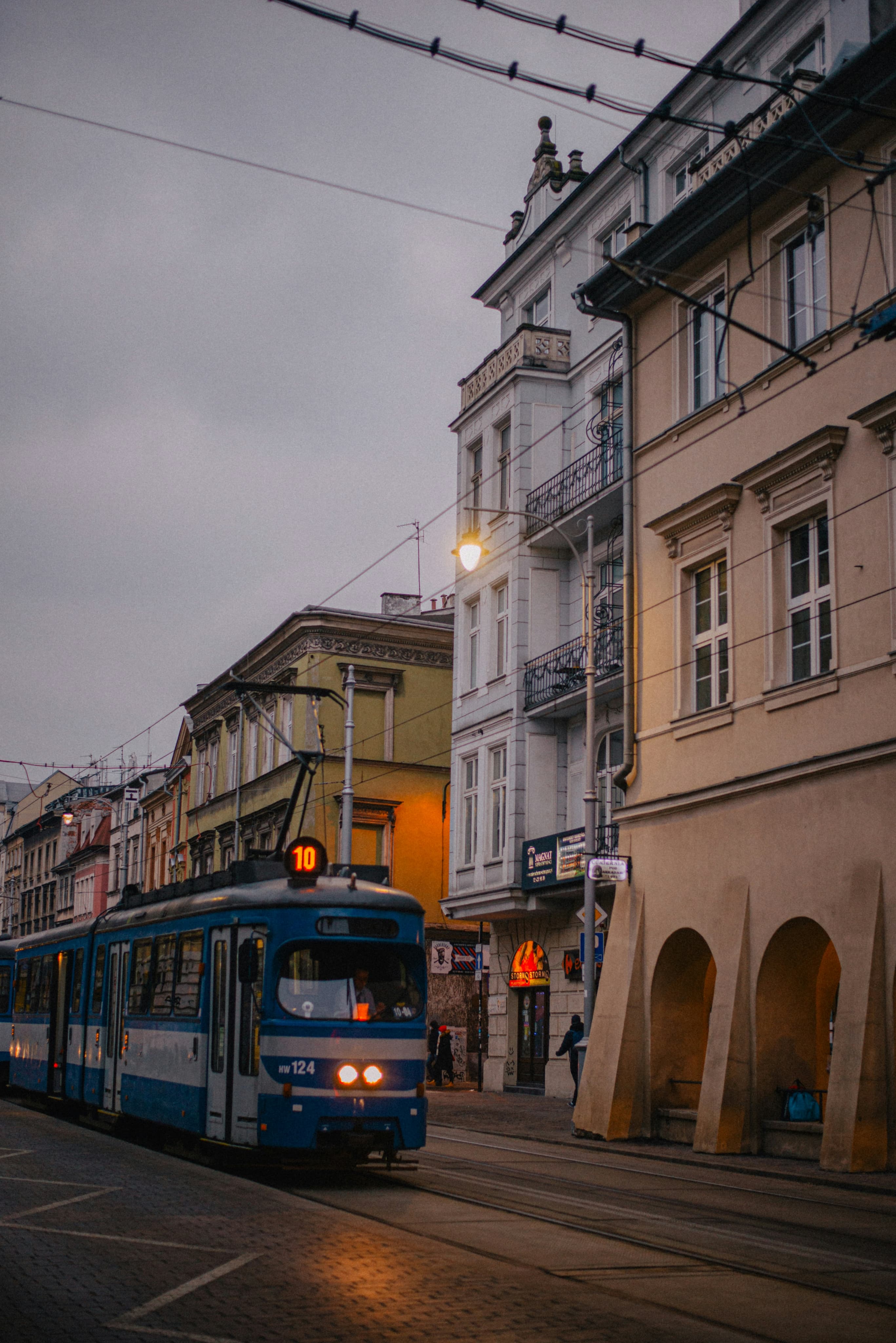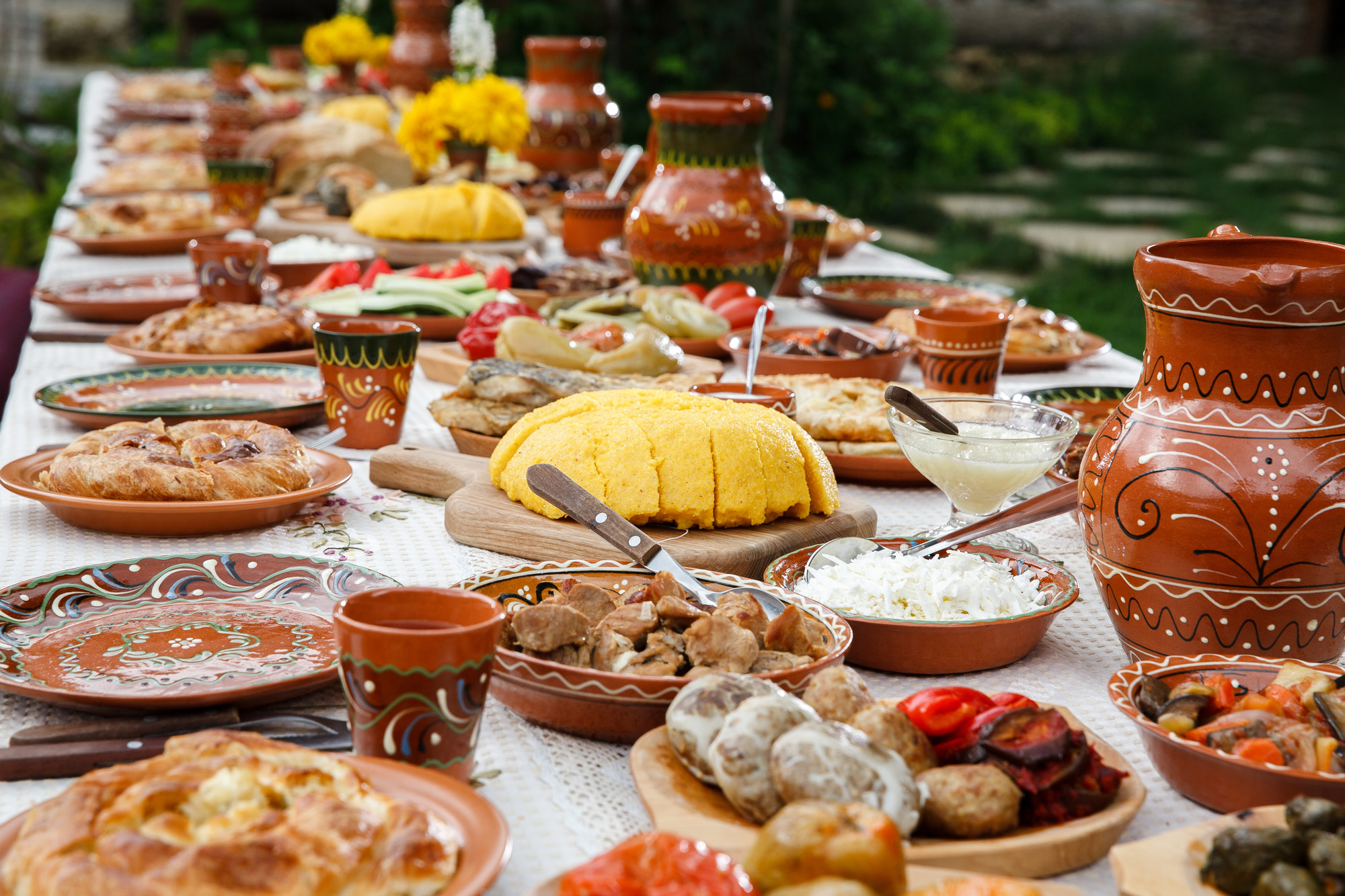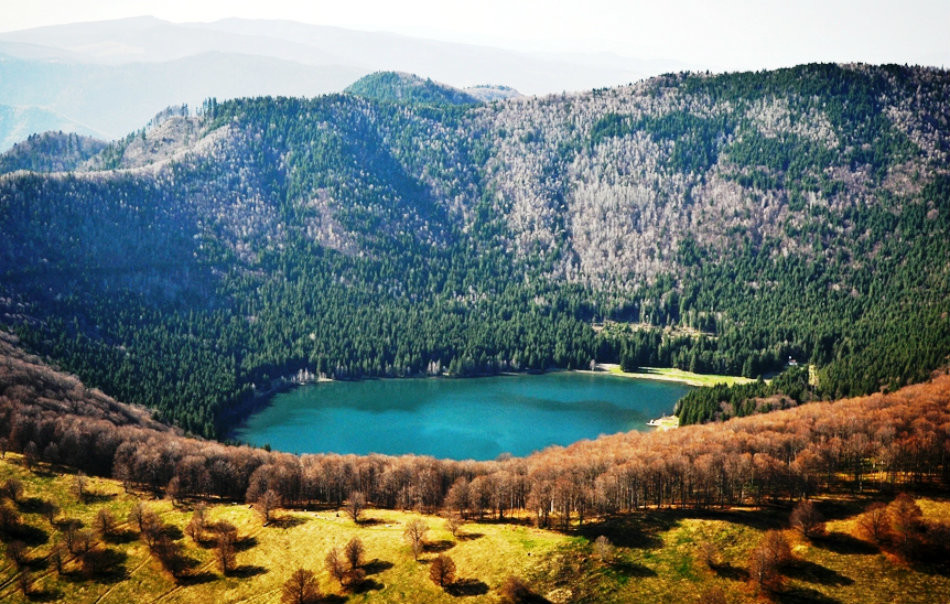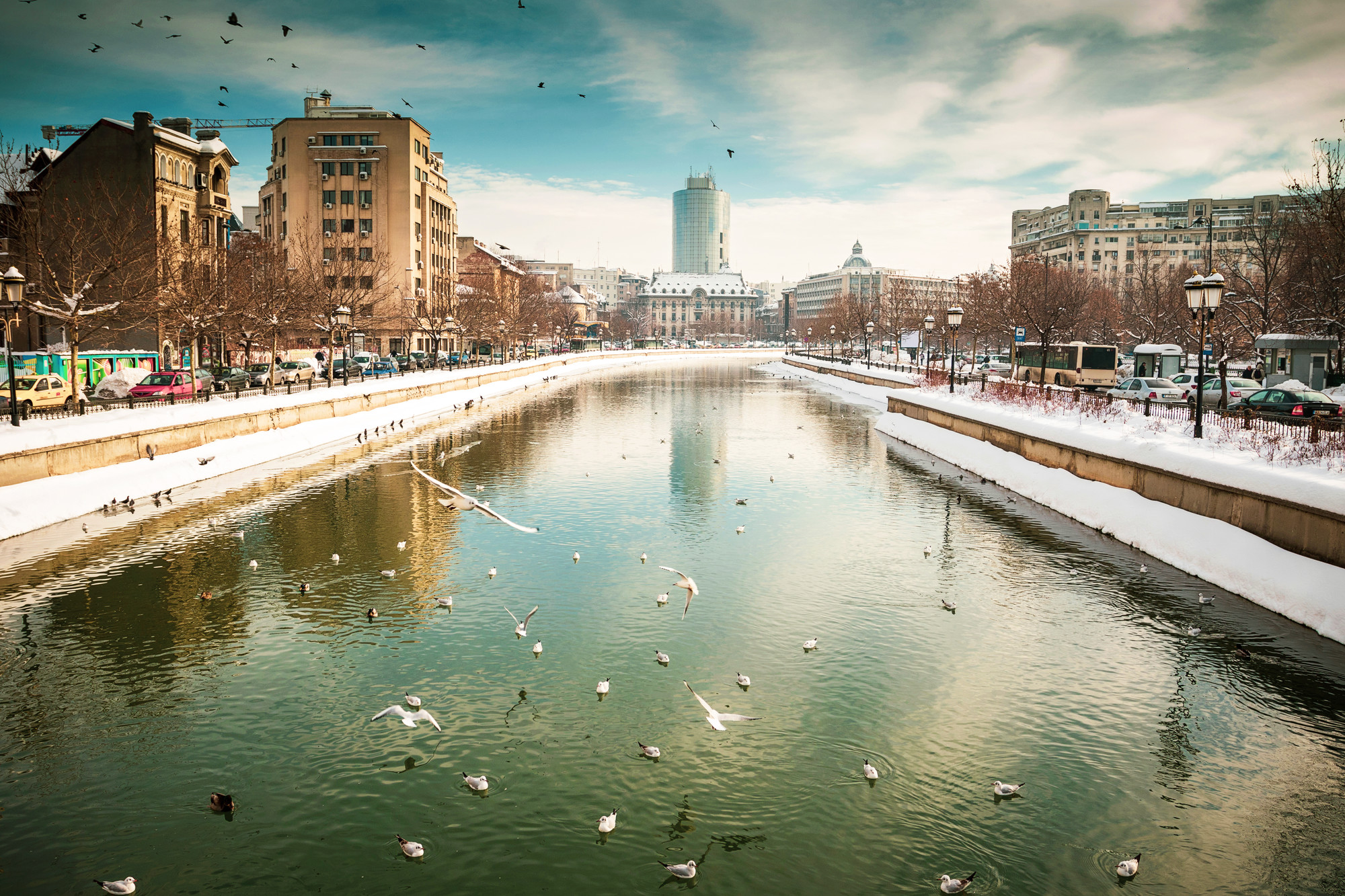Along the Enchanted Way
Apparently, in 1997, planes bound for Romania departed from the great media and financial centres of the western world carrying a sinister cargo: slick advertising executives hell bent on selling Romania’s dirt poor yet blissfully happy peasants all sorts of evil goods (such as – God forbid – shampoo) that they ‘neither needed nor wanted.’
Just a few months after their arrival, two country boys – who had hardly ever left their home village of Breb, in Maramures, northwestern Romania – set off for the nearest town to try their luck. They had been seduced by the sinister, slick advertising they had seen on their newly acquired television, which disgracefully and with wanton abandon showed them that there was in fact more to human existence than grinding out a living as a subsistence farmer.
Tragically, the boys died not long afterwards.
Despite not knowing how to swim, one hot afternoon they had joined their new work mates at a lake. Underestimating its depth they jumped in. Both drowned.
The story of the two boys (like every other vignette in this book: and there are many) is told in William Blacker’s startling matter-of-fact style, one of the many reasons that the pages rattle along and why – despite its reactionary politics – it is such a good read.
Yet Blacker is wrong to look to modern society as the cause of the two boys’ deaths (‘the modern world had made short work of them,’ he writes). To Blacker, the slick advertising executives – and the televisions that carried the images they created – were guilty for having seduced the boys with enticing images of modern life. If only they had been left alone in their blissful rural ignorance they would still be alive today.
A fair point? Perhaps. Perhaps they would still be alive, just as those people killed while fleeing over the Berlin Wall might still be alive had they not known how terrific life in West Germany was. After all, it was the same kind of logic that was used by the East German authorities, who spent fortunes trying to prevent East Germans watching West German television and seeing for themselves that there was more to life than a long shift at the local tractor factory.
Yet just as the East German communists couldn’t prevent their people craving more than they had, so conservatives have been unable to stop the march of progress into the Maramures and the other remote parts of Romania. Cruel, hard, medieval lifestyles are at last on their way out. Running water, inside toilets, double glazing, shampoo and jeans (with which Blacker appears to have a particular problem) are on their way in. Given the choice between back-breaking work and anything else, most Romanian peasants have taken the anything else.
Unfortunately, there remain far too many who have yet to be given the choice, and who remain tied to the land in much the same way serfs were hundreds of years ago. In not condemning this feudalism (in fact he in many ways romanticises it) Blacker commits an error, yet a forgivable one. He appears to be genuine when he writes that the people of Breb, despite the alcoholism, the domestic violence, the lack of health care, the belief in superstition, the back-breaking work and the outside toilets are ‘the happiest people I have ever met.’It is not a sin to be naive. So as much as we want to dislike this book, we can’t.That we in fact thoroughly recommend it is ample testament to Blacker’s many gifts as a writer and storyteller. We hope he will write more.
And we say that knowing that there is little about this book progressives will find appealing. Privileged beyond most people’s wildest dreams, Blacker was brought up in one of England’s finest country houses, and educated at its best and most expensive public school, Eton.After ‘trying to live in London’ and having a rather nice time in Italy, the restless Blacker heads for Romania – a place he had visited briefly in 1990 – to seek out the medieval world he had caught a glimpse of on that earlier trip. He lives the life of the peasant for a few years, raises money to repair Saxon churches (admirable), falls in love with a Gypsy and ends up getting her sister pregnant. He then decides he has had enough of the peasant life and leaves, rather suddenly.Why he leaves is not important. The point is he can. He has that choice, whereas those around him do not.
Blacker now (according to this interview with Sebastian Cresswell-Turner – yes, really) spends most of his time either in Chelsea or Yorkshire, or ‘putting the finishing touches on his medieval tower in Tuscany,’ living the kind of life that most people – leave alone Romanian peasants – could only dream of. Good luck to him.




